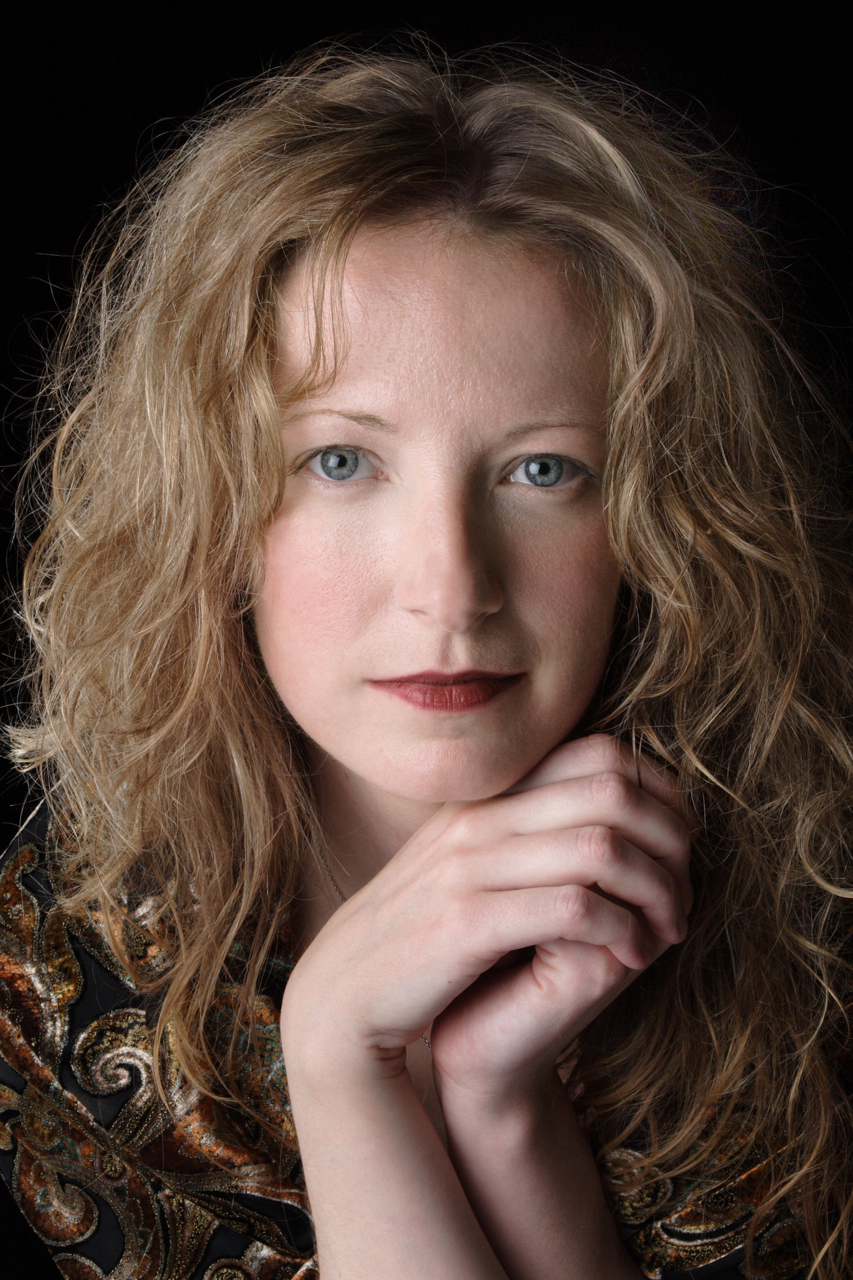By Stephen Brookes • The Washington Post • November 17, 2013
There’s no simple way to describe “Colombine’s Paradise Theater” — the wildly imaginative new music-theater-dance piece by composer Amy Beth Kirsten, performed at the Atlas Performing Arts Center last weekend. But it’s a tour de force any way you cut it.
 Amy Beth KirstenBuilt on a few fragments of 17th-century poetry and some archetypal characters from Venetian commedia dell’arte, it’s a highly stylized, darkly beautiful love story that’s steeped in myth yet utterly modern. There’s no real plot; the players (the virtuosos of the new-music ensemble "eighth blackbird") act out the roles of a young woman and her two suitors. But the story really unfolds in the rich poetic imagery — both musical and visual — in the shadowy, unsettling world Kirsten creates.
Amy Beth KirstenBuilt on a few fragments of 17th-century poetry and some archetypal characters from Venetian commedia dell’arte, it’s a highly stylized, darkly beautiful love story that’s steeped in myth yet utterly modern. There’s no real plot; the players (the virtuosos of the new-music ensemble "eighth blackbird") act out the roles of a young woman and her two suitors. But the story really unfolds in the rich poetic imagery — both musical and visual — in the shadowy, unsettling world Kirsten creates.
Nothing is what it seems in this nocturnal place; musicians shift from role to role, a flute solo turns to a half-whispered soliloquy, a bass drum begins to glow and becomes the moon, and even the landscape itself is played as an instrument. Yet despite the episodic structure of its 11 movements, “Colombine” unfolds with the seamless, compelling logic of a dream.
This was no pleasant little reverie. Kirsten writes in a fiercely expressionist style, probing the inner states of her characters with a sharp stick. “Colombine” felt driven by nightmares, by primitive, urgent memories swimming unwelcomed to the surface. The players — denizens of this murky world — shriek and growl and pound out rhythms on the ground, entwine around one another, engage in luminous duets and stalk one another in intricate dances of love. There’s a beguiling element of the grotesque throughout, and the music is complex and multilayered, rich in allusions, and often extraordinarily beautiful. When the lights come up at the end, you feel as though you’ve awoken from some strange, ancient ritual — and you want to go back.
Much of the credit for this superb production goes to the "eighth blackbird" players, who performed the work masked, in costume, in constant motion — and entirely from memory. Pianist Lisa Kaplan brought nuanced passion to her role as the beleaguered Colombine, flutist Timothy Munro made a fine, sinister Harlequin, and percussionist Matthew Duvall brought the Pierrot role alive as he navigated the vast array of drums and bells that comprised the set itself. The considerable visual poetry of the production, meanwhile, came from the inventive director and set designer Mark DeChiazza.